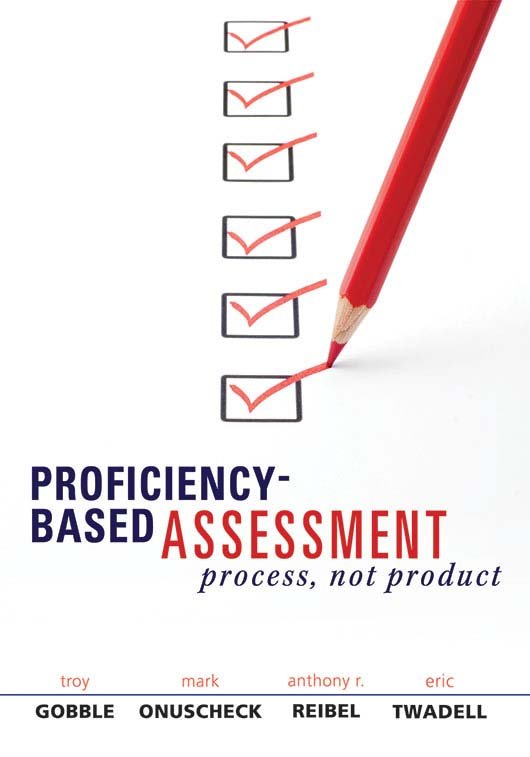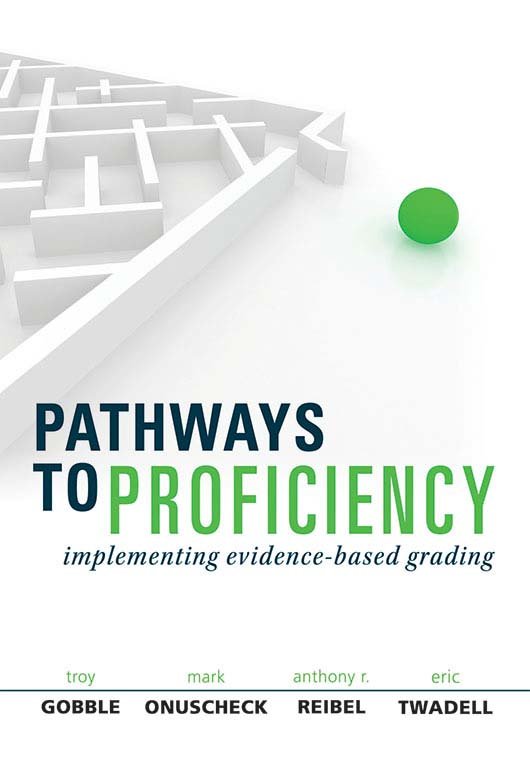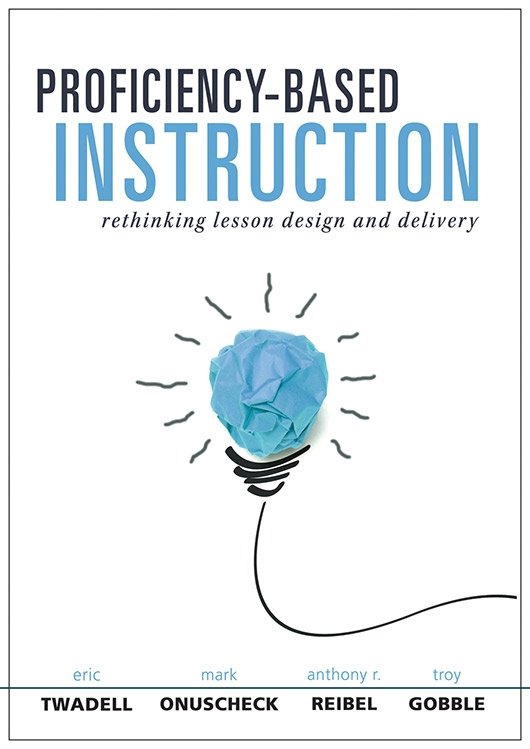Our On-Site Professional Development for Competency-Based Learning
Teachers and administrators can evolve the existing model of schooling into one that is more innovative, relevant, and effective. Take action to ensure all students master critical content by designing and implementing a competency-based (or proficiency-based) education system.
Where are you on your professional learning journey?
Your Goal
Building Your Skills
One‑Day Services
Implementing a Competency-Based Learning and Grading System
Nurture a growth mindset and promote personal efficacy with a competency-based learning and grading system. This on-site PD service will show you how to teach, assess, collect, monitor, and review student-produced evidence in essential course skills. Your learners will develop a self-reliant, confident attitude that will help them navigate the rigors and complexities of higher education.
Your Goal
Deepening Your Skills
Two‑to‑Four‑Day Services
Proficiency-Based Assessment
Discover how to close the gaps between assessment, curriculum, and instruction by replacing outmoded assessment methods with proficiency-based assessments.
- Follow a curriculum team’s journey through the process of learning about and implementing proficiency-based assessment.
- Discover how the phases in the proficiency-based assessment implementation process relate to each other and how each is important.
- Understand the causes of learning gaps.

Recommended Resource
Implementing Evidence-Based Grading
Challenge traditional grading practices and adopt a new, more effective grading model for students. This on-site professional learning engagement provides the pathway for implementing evidence-based grading practices in schools through a straightforward, five-phase creative model: (1) preparation, (2) incubation, (3) insight, (4) evaluation, and (5) elaboration.
- Recognize the challenges that can impede efforts to change grading practices.
- Consider research that can help shape individualized, valuable professional learning experiences.
- Identify the concepts and perspectives to which curriculum team members must commit, to successfully adopt evidence-based grading practices.
- Approach grading practices to focus collaborative team discussions designed to improve student learning.

Recommended Resource
Innovative Strategies for Proficiency-Based Instruction
Reinvent classroom lesson design with a focus on proficiency-based instructional strategies.
- Learn the benefits of switching from traditional instruction to proficiency-based instruction.
- Explore the process, concepts, and supporting pedagogy of proficiency-based instruction and curriculum planning.
- Acquire a five-step implementation strategy: (1) preparation, (2) incubation, (3) insight, (4) evaluation, and (5) elaboration.

Recommended Resource
Adapting Evidence-Based Grading for Content Area Teachers
Put student growth at the heart of the classroom. Designed for content-area teachers and administrators, these strategies and techniques reveal how to implement evidence-based grading and maintain its effectiveness over time.
- Become familiar with the basic concepts and essential decisions of evidence-based grading that apply to teaching in all content areas.
- Study individual-level and institutional-level grading decisions and how they differ from each other.
- Become familiar with the steps, paradigm shifts, and pedagogy necessary to implement proficiency-based grading in a particular content area.

Recommended Resource
Your Goal
Sustaining Your Skills
Multi‑Day Services
Becoming an Evidence-Based School
Help your school achieve proficiency and efficacy for all students, using evidence-based pedagogy and collaboration. In addition to re-examining their current practices, participants will explore the nature of assessment as a tool to support, learn how to involve the student in the feedback process, and understand how to promote reflective thought and evidence-based actions among learners.
- Consider the importance of learning objectives and targets in the assessment process.
- Learn the concept of co-constructed feedback and apply co-constructed rubrics to several learning scenarios.
- Review the core elements of formative assessment and discover how to implement the elements in example assessments.
- Explore the learner-led process of reflective inquiry that occurs before and after assessment.
- Engage with the reflective model to explore how it works and how it can be applied in your classroom.
- Learn about mindsets and strategies that promote conversations that lead to change.




